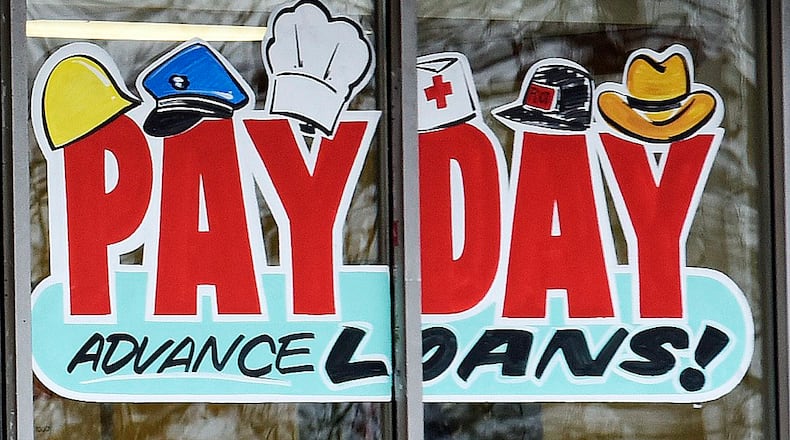Advocates need to gather 305,591 valid voter signatures to qualify for the statewide ballot.
The proposed constitutional amendment calls for prohibiting short-term lenders from charging more than 28 percent interest and fees on loans. Repayment schedules would be no more than 5 percent of the borrower’s gross monthly income.
REALATED: Big money, political muscle on display in payday lending clash
At the same time that advocates are threatening to take the issue to the voters, lawmakers are considering House Bill 123, which would bring about the most sweeping reforms to payday lending in Ohio in a decade.
However, the bill is in limbo until the Ohio House Republicans pick a new speaker to serve out the remainder of Cliff Rosenberger’s term. Rosenberger abruptly resigned in April amid a Federal Bureau of Investigation inquiry into his international travel with payday lending lobbyists.
RELATED: Payday lender made 3 international trips with ex-Ohio House speaker
HB123, which was introduced in March 2017, stalled in the House under Rosenberger’s watch.
Typically with payday loans, consumers borrow between $100 and $1,500 that must be repaid within 30 days, either through a post-dated check or automatic withdrawal. Interest and fees can boost the annual percentage rate above 400 percent. Often, borrowers can’t make the full payment when it comes due, so the loan is extended, accruing more interest and fees.
A decade ago, Ohio lawmakers passed a law to restrict interest and fees on payday loans. The industry put the law up for a referendum and 63.6 percent of Ohio voters decided to keep the restrictions. But lenders sidestepped the limits by issuing loans through other sections of Ohio law.
The payday lending industry opposes HB123, calling it unworkable.
About the Author

